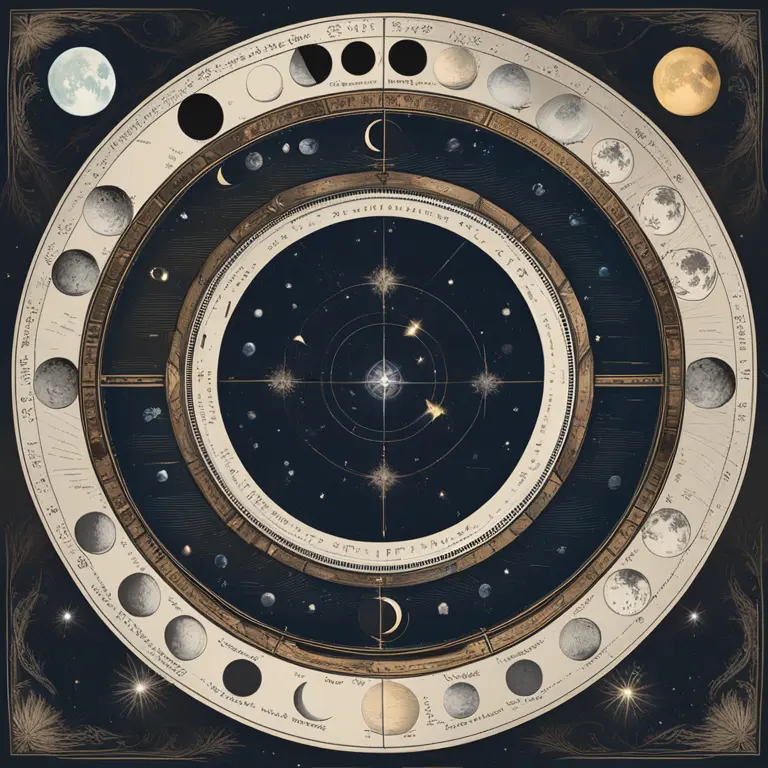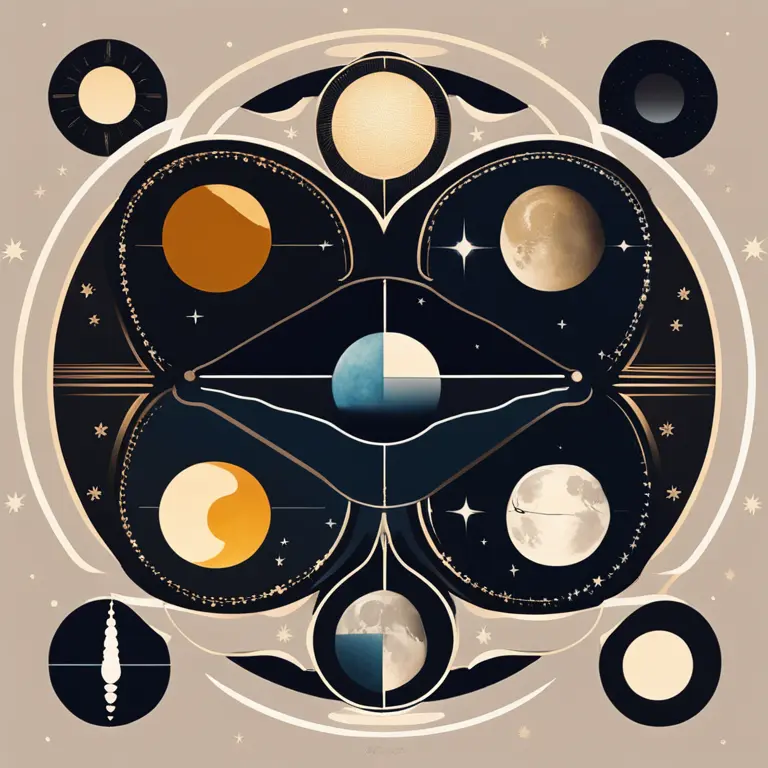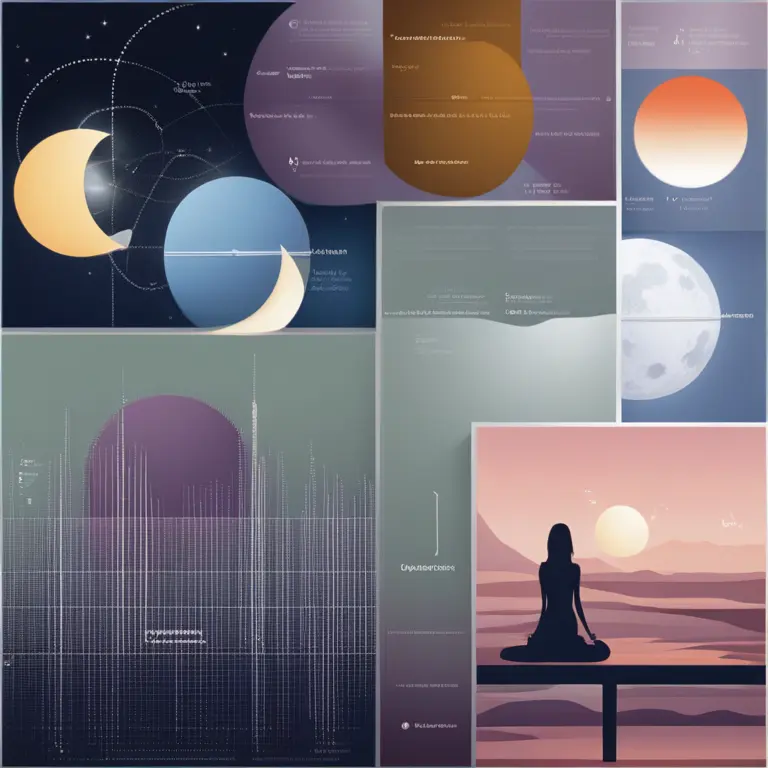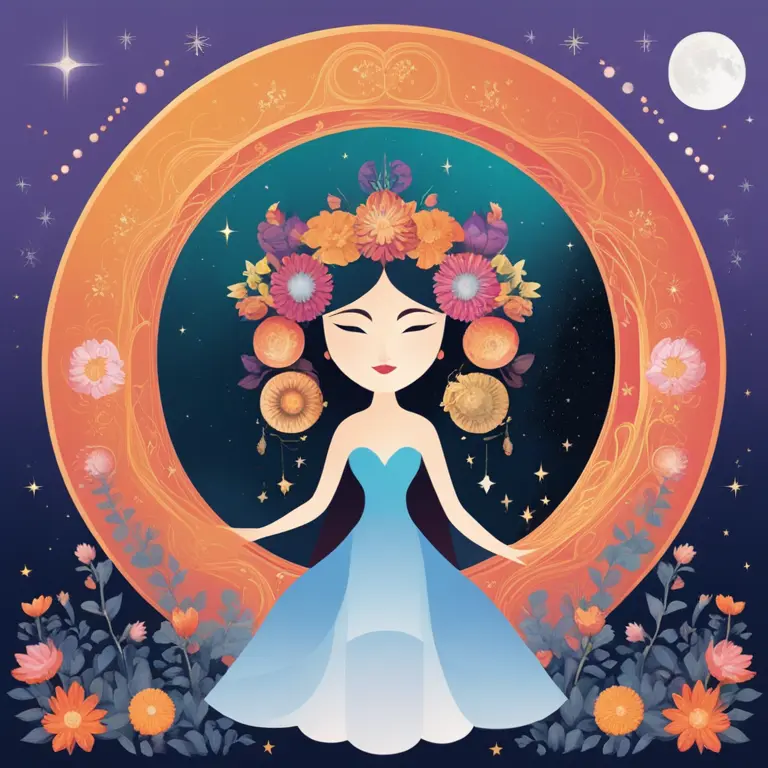
Moon Phases & Menstrual Cycles Connection
Delve into the compelling correlations between the lunar cycle and women's menstrual periods, exploring how these natural rhythms might interconnect.
article by Priya Deshmukh
The Lunar-Menses Connection
For centuries, the Moon has been a symbol of mystery and femininity. Its cyclical journey mirrors the menstrual cycle's own phases, suggesting a profound link between celestial movements and women's bodies. The Moon completes its orbit around Earth approximately every 29.5 days, a rhythm that seems to echo the average female menstrual cycle. This similarity has prompted many to speculate about the potential influence of lunar phases on menstrual health and timing. The concept isn't new; many ancient civilizations aligned their understanding of fertility and time with the Moon's phases.

Scientific Scrutiny
Despite plentiful anecdotal claims, scientific perspectives on the Moon-menstrual link are mixed. Some studies suggest a statistically significant synchronization, while others find no robust connection. Hormonal fluctuations within the menstrual cycle induce varied physiological and emotional states, much like the waxing and waning of the Moon, but pinpointing a direct causal relationship proves elusive. Researchers continue to explore this topic, seeking clarity on whether lunar gravitation exerts any meaningful impact on the human endocrine system.

Phases of the Moon
The Moon's journey comprises several phases: New Moon, Waxing Crescent, First Quarter, Waxing Gibbous, Full Moon, Waning Gibbous, Third Quarter, and Waning Crescent. These stages influence various earthly phenomena, such as tides. In palmistry and astrology, each phase is believed to hold specific energies. For instance, the New Moon is often associated with new beginnings, which some suggest corresponds with menstruation signaling a fresh cycle for women, both physically and energetically.

Menstrual Phases and Lunar Energy
The menstrual cycle also consists of phases: menstruation, the follicular phase, ovulation, and the luteal phase. Each phase could conceptually align with the lunar cycle, such as the fertile window near ovulation being connected to the Full Moon's symbolism of fullness and abundance. While there's no conclusive evidence, it's intriguing to consider how the lunar energies might mirror or even influence these stages, particularly in terms of emotional and physical wellbeing.

Astrological Insights for 2024
Peering into 2024, astrology may offer personalized insights into how lunar phases could impact individuals differently. For example, people with significant lunar placements in their natal charts might feel more intuitive or sensitive during certain Moon phases. Understanding one's Moon sign and its aspects could provide hints at potential menstrual cycle synchronicities or emotional patterns to prepare for in the coming years.
Empowerment Through Rhythms
Embracing these natural rhythms might empower individuals to align with their intrinsic cycles. The practice of lunar cycle tracking, alongside menstrual cycle monitoring, could lead to increased self-awareness and a better understanding of one's bodily and emotional ebbs and flows. In this sense, moon phase awareness becomes more than just mystical musing; it's a practical tool for navigating the complexities of modern femininity and health.
Cultural and Personal Reflections
Regardless of scientific verdicts, the moon phase-menstrual cycle relationship holds cultural and personal significance for many. It serves as a reminder of the universal rhythms that connect us to nature and each other. While the debate rages on about the degree of the Moon's sway over our bodies, this shared cosmic and corporeal journey continues to inspire wonder and introspection well beyond 2024.
Published: 1/19/2024
Modified: 1/19/2024
More predictions
Come back here soon to learn more about yourself and your future


The Phenomena of Moon Phase Eclipses
Delve into the captivating phenomena of moon phase eclipses and their astrological significance in this insightful article.


The Moon's Phase and Personal Relationships
Discover how the lunar cycle may play a role in the dynamics of personal relationships and emotional interactions.


The Mystique of Moon Phase Eclipses
Delve into the cosmic spectacle of moon phase eclipses and their significance in astrology.